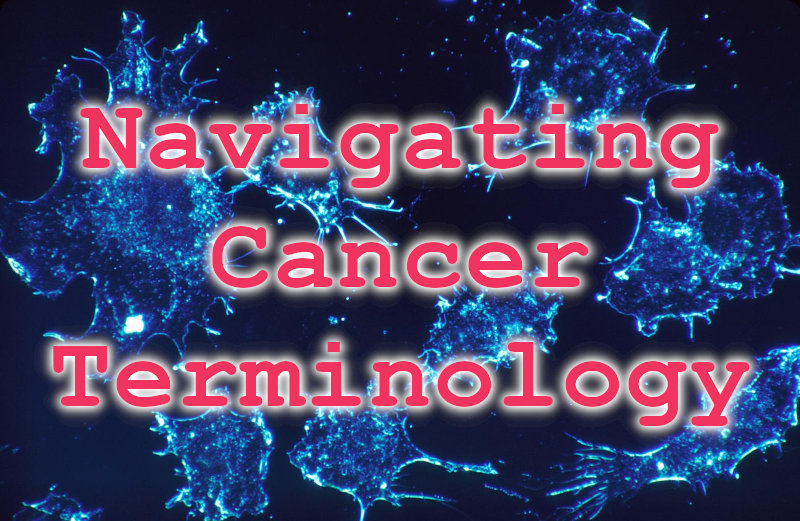Understanding Common Terms Used in Cancer Treatment

November 1st, 2023 | Cancer
Navigating Cancer Lingo
Cancer is a complex disease that has baffled scientists and medical professionals for ages. Its scary name causes fear in the hearts of many people. However, developments in medical research have helped us understand it better and created a variety of cancer treatment choices.
Terminology
Understanding cancer medical terminology used in therapy is essential for navigating this complex disease. Let’s debunk these concepts, arm you with knowledge, and encourage a sense of control in the face of difficulty.
- A biopsy is the primary method of identifying cancer. It understands taking a tiny sample of tissue from the afflicted region. Pathologists then analyze this sample under a microscope to find out if cancer cells are present. Moreover, biopsies aid in determining the kind and stage of cancer and help with therapy choices.
- A tumor is a growth of aberrant tissue that can be benign (non-cancerous) or malignant (cancerous). Malignant tumors have the capacity to infiltrate adjacent tissues and spread (metastasize) to distant areas of the body.
- An oncologist is a doctor who specializes in cancer detection and management. Oncologists come in a variety of forms, including medical, surgical, and radiation oncologists, each of which specializes in a certain aspect of cancer diagnosis or treatment.
- Chemotherapy is a systemic medication that targets and destroys cancer cells that are dividing quickly. You can give it to someone orally or intravenously. Chemotherapy frequently has negative side effects since it also affects healthy cells.
- Radiation therapy uses powerful rays or particles to either kill cancer cells or stop their development. It frequently works in tandem with chemo or surgery to target certain cancerous tissue.
- Surgical intervention or surgery includes the excision of the malignant tumor and, in certain situations, the surrounding tissues. While conserving good tissue and function, surgeons work to remove as much cancer as they can but also preserve all healthy tissues left.
- Metastasis is the term used to describe how cancer cells travel from the main tumor to different places in the body. It is crucial in establishing the cancer’s stage and affects which cancer treatment you’ll choose
- Remission is a time during which cancer symptoms are absent or lessened. As some cancer cells may still be present, the cancer may not be completely healed. Throughout this time, regular monitoring is crucial.
- Palliative Care aims to improve the quality of life for people with cancer. By focusing on pain and symptom management, emotional support, and general well-being, palliative care is not just for the care of the terminally ill.
- Clinical trials are research projects that assess novel cancer medications or treatments. Clinical trial participation can open up access to cutting-edge therapies and progress cancer therapy.
- Immunotherapy means using the immune system of the body to combat cancer cells. It is steadily improving as a therapy option and has demonstrated exceptional effectiveness in treating specific forms of cancer.
- Side Effects are unwanted results of cancer therapy. They can affect different regions of the body and range in severity. In case you’re experiencing any side effects, it is crucial to share it with your medical staff. Our Queasy product line also offers some side effects’ relief, so make sure to check it out.
Your ally in this fight is knowledge, allowing you to talk to medical experts, raise important issues, and take an active role in choosing your own course of cancer treatment. You gain assurance, clarity, and control over your route to recovery with each phrase that is demystified. May this information be a guiding light for you as you move on, illuminating the path to a happier, healthier future. For more insightful info, read the rest of our blogs.
Recent Posts
- Sip Your Way to Relief: Hydration & Bland Drinks for Chemotherapy Nausea
- Surviving Valentine’s Day: A Gentle Guide for the Morning Sickness Warrior
- Managing Chemotherapy-Related Anxiety: A Guide to Finding Your Strength
- Treat the Amazing New Mom: Self-Gifting Ideas for Postpartum Recovery
- The Overwhelming Reality: Why Support is Crucial After Postpartum & Chemotherapy
Categories
- All-Natural (4)
- Blog (47)
- Cancer (79)
- Diet (15)
- Holidays (27)
- Lifestyle (69)
- Motion Sickness (44)
- Nausea (106)
- New Mothers (41)
- Oncology Testimonials (3)
- Prebiotics (1)
- Preggie Products (11)
- Preggie Testimonial (24)
- Pregnancy (160)
- Queasy Products (7)
- Queasy Testimonial (17)